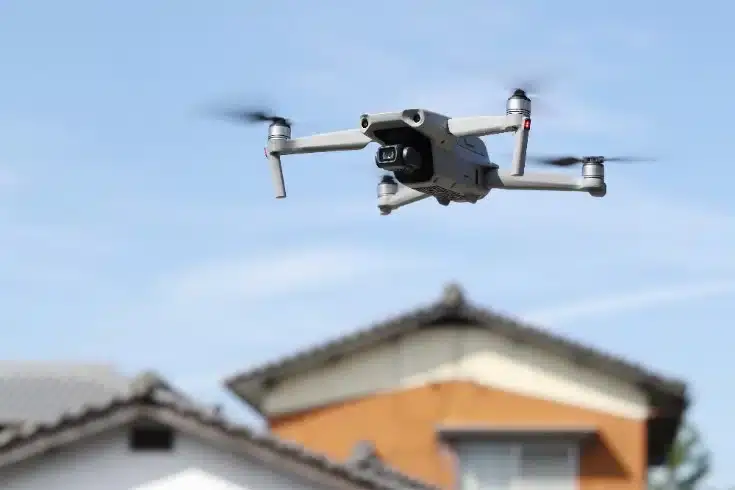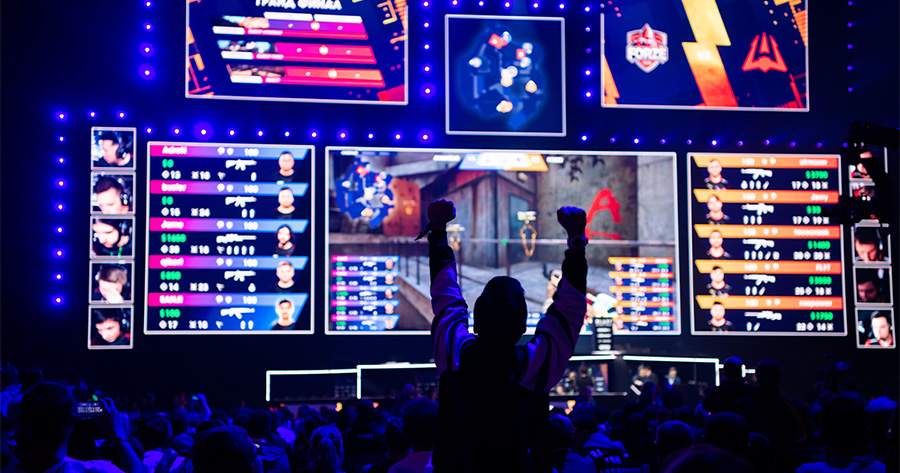What are Facilities Based on the Elderly Welfare Law? Explaining the Differences from Other Welfare Facilities and Admission Criteria
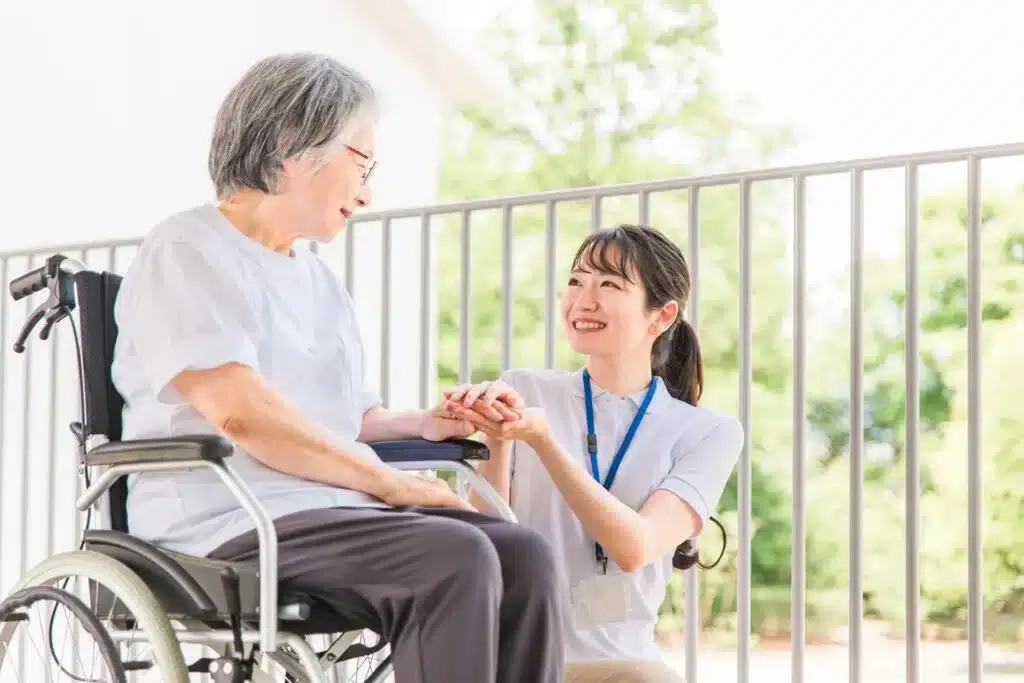
In an era where the aging population is growing and the birthrate is declining, the demand for elderly care and welfare services is becoming increasingly significant. Amidst the rising need for care and welfare services, there exists a multitude of elderly welfare facilities, each with its own set of personalityistics and differences.
Understanding the unique features of each welfare facility for the elderly is essential for the management of welfare operations. By comprehensively grasping the differences between facilities and being aware of key points for handling in-facility issues, one can achieve effective and smooth operation of welfare services.
This article provides an introduction to the types of facilities based on the Japanese Elderly Welfare Law (老人福祉法) and a detailed explanation of the personalityistics and differences of each facility. It also concretely discusses the points of caution for the smooth management of elderly welfare facilities and the strategies for dealing with issues when they arise.
Understanding the Elderly Welfare Law

The Elderly Welfare Law is a piece of legislation enacted in Showa 38 (1963), which outlines the establishment of welfare facilities for the elderly and projects related to elderly welfare. At the time of its enactment in 1963, Japan was experiencing a period of rapid economic growth. Many people were moving from rural areas to urban centers, leading to an increase in nuclear families and making it more challenging to provide support and care for the elderly within the family setting.
The Elderly Welfare Law primarily stipulates the following four points:
| Category | Details |
| Welfare Measures | Municipalities must provide necessary conveniences for elderly individuals over 65 who, due to physical or mental disabilities, face difficulties in daily life and cannot receive care services otherwise. |
| Support for Elderly Living at Home | Defines the implementation of six types of projects to support the home life of the elderly: in-home care, day services, short-term stays, small-scale multifunctional in-home care, group living support for those with dementia, and complex service welfare projects. |
| Elderly Welfare Facilities | Specifies seven types of welfare facilities: day service centers, short-term stay facilities, nursing homes, special nursing homes, light-care homes, welfare centers for the elderly, and elderly care support centers. |
| Fee-based Elderly Homes | Outlines the establishment and operation of fee-based elderly homes. |
Among the four points mentioned above, we will discuss elderly welfare facilities and fee-based elderly homes in further detail later on.
Furthermore, according to Article 20-8 of the Elderly Welfare Law[ja], municipalities are required to establish plans to ensure the supply system of projects related to support for elderly living at home and elderly welfare facilities, thereby mandating the creation of elderly welfare plans.
Care Welfare Facilities Based on the Japanese Elderly Welfare Law
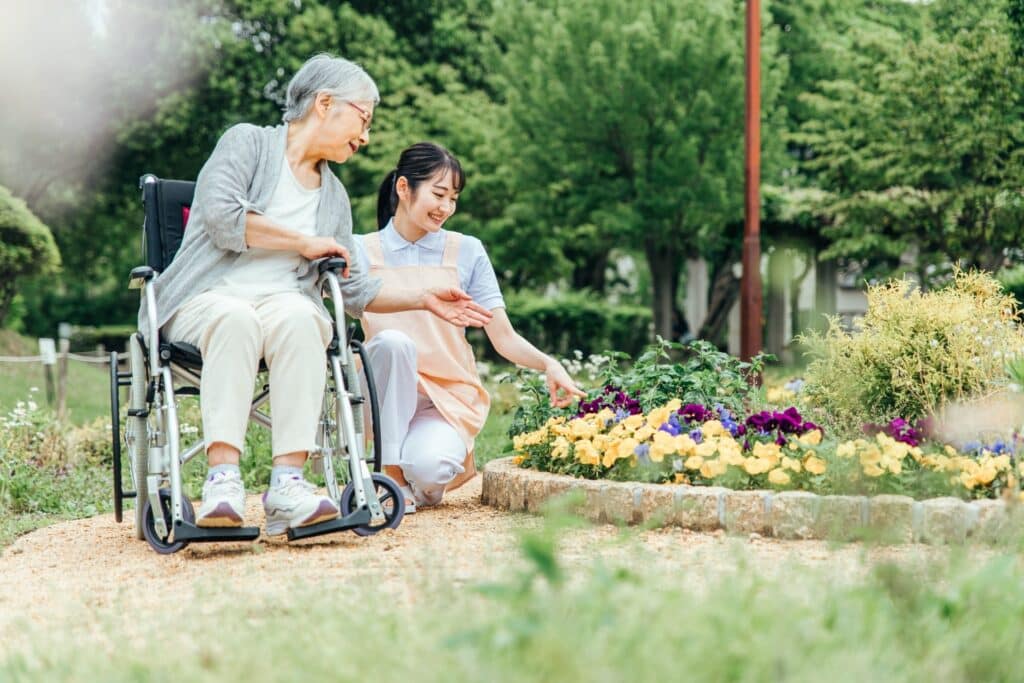
Among the four main provisions defined by the Japanese Elderly Welfare Law, the following seven types of elderly welfare facilities are stipulated:
- Senior Day Service Centers
- Short-term Residential Facilities for the Elderly
- Nursing Homes for the Elderly
- Special Nursing Homes for the Elderly
- Light-Cost Homes for the Elderly
- Elderly Welfare Centers
- Elderly Care Support Centers
We will provide explanations for these seven types of facilities.
Elderly Day Service Centers
Elderly Day Service Centers are facilities that provide daily support and care for individuals over the age of 65 who have physical or mental disabilities. These centers offer assistance with bathing, meals, and toileting, as well as advice on living, recreational activities, and functional training on a day-return basis.
Short-Term Residential Facilities for the Elderly
Short-term residential facilities for the elderly are establishments where seniors aged 65 and over, who require care and find it challenging to receive in-home care due to temporary reasons such as illness in the caregiver’s family or during events like weddings and funerals, can stay for a short period. Commonly referred to as “short stays,” these facilities provide care and support for daily living activities during the period when in-home care is not feasible.
Care Homes for the Elderly
Care Homes for the Elderly are facilities designed to accommodate and provide care for seniors aged 65 and over who find it difficult to live at home due to financial or environmental reasons. In 2006, the Japanese Long-Term Care Insurance system was revised, and these homes were added as a specific type of facility. As a result of the revision, the criteria for admission no longer included ‘physical or mental reasons’.
Special Nursing Homes for the Elderly
Special Nursing Homes for the Elderly are facilities designed to provide daily care, including bathing, toileting, and meals, for seniors aged 65 and over who have significant physical or mental disabilities and require constant care, but for whom home care is challenging.
To be eligible for admission, seniors must be certified as needing care level 1 or higher. However, under certain unavoidable circumstances, even those at care level 1 or 2 may be exceptionally admitted.
In recent years, due to system revisions and legal amendments, facilities with a capacity of fewer than 29 residents, known as community-based homes, have been established, and the disclosure of information regarding care services has become mandatory.
Affordable Elderly Care Homes
Affordable Elderly Care Homes are facilities where seniors, who may have physical disabilities or other concerns that make independent living challenging, and who also find it difficult to receive care or support from family, can reside at a relatively low cost.
There are three types of services provided: Type A, which includes meals; Type B, where residents cook for themselves; and Type C, which are care houses. In 2008 (Heisei 20), a policy was introduced to consolidate these services into care houses. However, Type A and Type B facilities that were already in operation before this policy continue to exist on a transitional basis.
Senior Welfare Centers
Senior Welfare Centers are facilities that offer various consultation services for the elderly at no or low cost, as well as providing services aimed at promoting health and enhancing education for senior citizens. The types of activity services include, for example, social dance classes and haiku poetry courses.
Senior Welfare Centers are categorized into special Type A, operated by municipalities to support general life consultations and health promotion activities; Type A, managed by social welfare corporations to provide various consultations, guidance, and educational courses; and Type B, which complements Type A centers.
Elderly Care Support Centers
Elderly Care Support Centers are not facilities where seniors reside directly. Instead, they provide necessary information and support to elderly individuals requiring care at home, as well as to their families. These centers offer consultation services for in-home care and address concerns related to daily living. They play a comprehensive role in coordinating and assisting communication between the elderly and their families, who are the primary parties involved, and elderly welfare service providers.
To ensure swift coordination and assistance, including during nighttime and emergencies, these centers operate on a 24-hour basis. As a result, they are often located alongside special nursing homes for the elderly or hospitals.
What is a Paid Nursing Home?
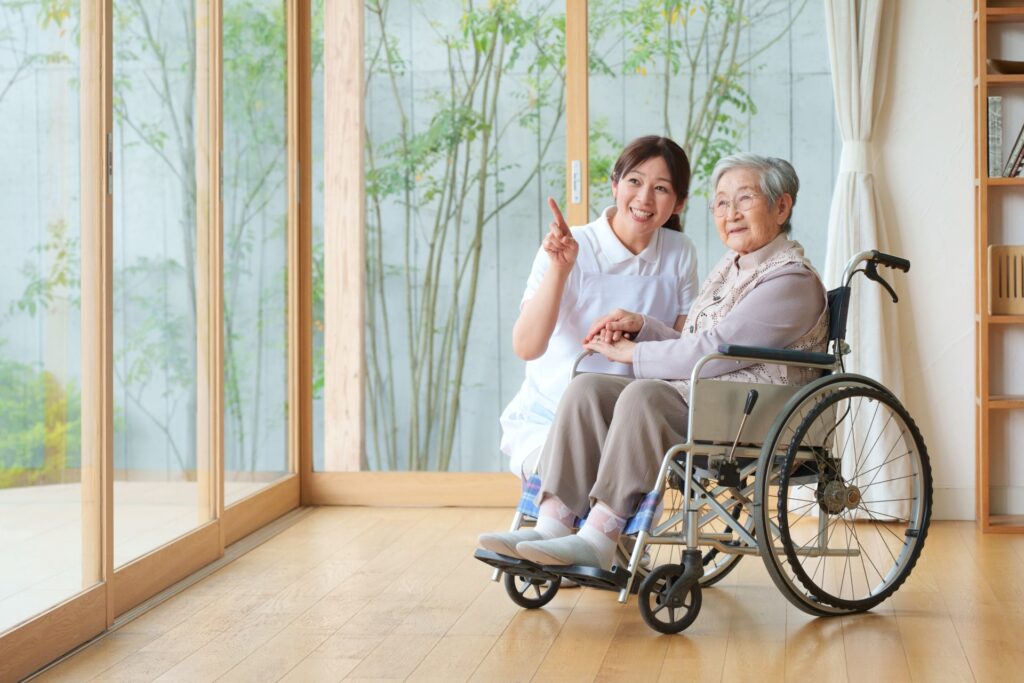
We have explained facilities for the elderly welfare as defined by the Japanese Elderly Welfare Law, but paid nursing homes do not fall under this category. However, Article 29 of the Japanese Elderly Welfare Law stipulates the following regarding paid nursing homes:
“Facilities that undertake the business of accommodating elderly individuals and providing services such as bathing, toileting, meal assistance, meal provision, or other conveniences necessary for daily life as specified by the Ministry of Health, Labour and Welfare.”
Reference: Japanese Elderly Welfare Law Article 29[ja]
While paid nursing homes are not considered elderly welfare facilities, they are defined by the Japanese Elderly Welfare Law and are subject to its regulations. A personalityistic feature of these facilities is that the conditions for residency, such as the level of care required by the residents and their age, vary from one facility to another.
What are the Facilities Based on the Japanese Long-Term Care Insurance Law?
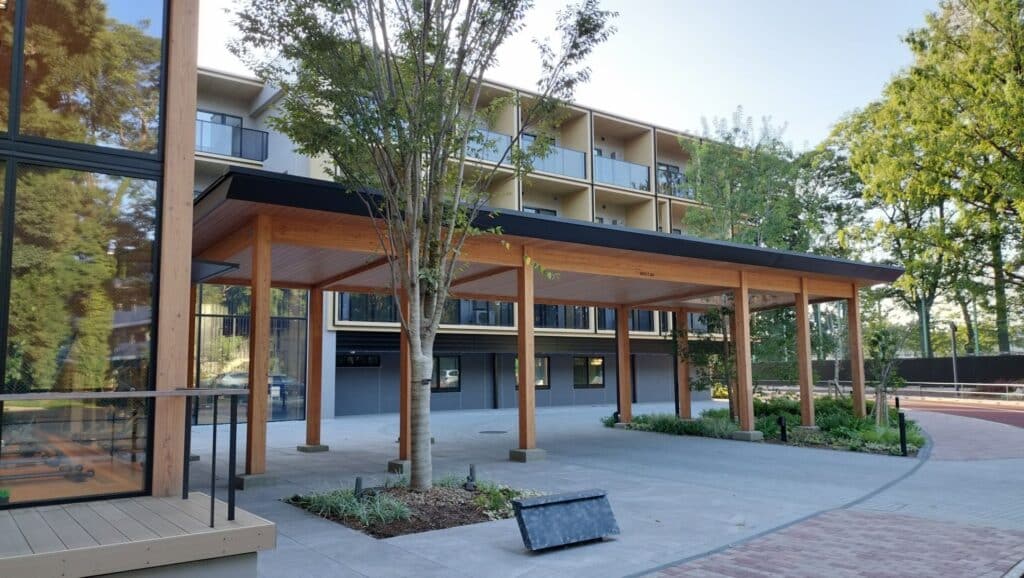
Under the Japanese Long-Term Care Insurance Law, there are three main types of public residential care facilities where long-term care insurance services can be utilized:
- Special Nursing Homes for the Elderly (Tokuyo)
- Health Services Facilities for the Older Persons (Roken)
- Long-Term Care Medical Institutions/Care and Treatment Type Medical Facilities
Previously, there were also care and treatment type medical facilities that were eligible for both medical insurance and long-term care insurance. However, these were completely phased out by the end of March 2024 (Heisei 36).
The Differences Between Special Nursing Homes and Care Welfare Facilities for the Elderly

Special Nursing Homes and Care Welfare Facilities for the Elderly do not differ in terms of the residents they serve or the services they provide. However, they are governed by different laws. The Japanese Elderly Welfare Law regulates Special Nursing Homes, while the Japanese Long-Term Care Insurance Law governs Care Welfare Facilities for the Elderly.
As a result, there are differences in admission criteria and services between Special Nursing Homes (SNH) and Care Welfare Facilities for the Elderly (CWFE).
Below is a table summarizing the differences between Special Nursing Homes and Care Welfare Facilities for the Elderly.
| Special Nursing Homes (SNH) | Care Welfare Facilities for the Elderly (CWFE) | |
| Admission Criteria | Aged 65 or older, requiring care level 3 or above | Aged 65 or older, requiring care level 1 or above |
| Facility Role | Residence with physical care and support | Rehabilitation with the goal of returning home |
| Facilities | Primarily for living | Primarily for rehabilitation |
| Entrance Fee | Not required | Not required |
| Length of Stay | Lifetime use | Typically 3 months |
| Ease of Admission | Long waitlists, sometimes years | Relatively shorter waitlists, often months |
In terms of the role and purpose of the facilities, Special Nursing Homes are designed for residents to receive care while living there, whereas Care Welfare Facilities for the Elderly aim to provide rehabilitation so residents can return to living at home. Therefore, the intended duration of stay differs significantly, with lifetime use in SNH versus typically a three-month stay in CWFE.
While the monthly costs are similar for both types of facilities, a notable difference is the ease of admission. Special Nursing Homes often have long waitlists, and in some cases, people may wait for years to be admitted.
Notification Requirements for Elderly Welfare Facilities and Paid Nursing Homes

When initiating, altering, discontinuing, or suspending an elderly residential life support business, such as elderly welfare facilities or paid nursing homes, it is mandated by Article 14 of the Japanese Elderly Welfare Law (老人福祉法)[ja] to submit a notification of the matters prescribed by the Ministry of Health, Labour and Welfare ordinance to the prefectural governor.
Furthermore, even for paid nursing homes that do not fall under the category of elderly welfare facilities, it is required to submit a notification to the prefectural governor when starting the business, as stipulated by Article 29 of the Japanese Elderly Welfare Law (老人福祉法)[ja].
Notification Process
The process for notifications when starting or launching a business is as follows:
- Determine the nature of the business and coordinate with relevant agencies.
- Submit a facility opening plan, explaining the purpose of establishment and the nature of the business.
- Undergo review and preliminary consultations with the municipal Social Welfare Corporation Authorization Review Committee.
- Carry out procedures for loan applications and funding.
- Apply for facility opening permission.
First, consult with the municipal department in charge about starting the business. This includes preparing to decide on a concrete schedule for the opening and selecting the location for the facility. It is also important to coordinate with relevant agencies for future progress and consultations.
After consulting with the municipal department about starting the business, once the plan is solidified, submit the facility opening application form and the facility opening plan in the format designated by the municipality. Since there is a specified deadline for submission, make sure to submit on time. Also, as changes to the facility opening plan are generally not accepted after submission, create it after thorough consideration.
After submitting the facility opening plan, the municipal review committee will assess the content and validity of the plan. Even if the plan passes the review committee, it may be rejected if it does not align with the municipality’s development plan, so caution is needed. Furthermore, if the plan is approved, you must start the development by the end of the next fiscal year following the notification.
When actually starting the construction or development of the facility, applications for loans and funding are necessary. Applying for financing through the Independent Administrative Agency for Welfare and Medical Service can provide the necessary funds. However, an opinion letter from the mayor of the municipality or similar is required, so do not forget to obtain this letter. Delay in receiving financing due to forgetting the opinion letter can lead to delays in the entire plan, so caution is needed.
Once it is confirmed that the facility or office’s internal equipment and staffing meet the regulations, apply for opening permission. Afterward, you can generally start the business on the first day of each month as the opening day.
Penalties for Failure to Notify or False Notifications
When starting a business, failing to notify the relevant authorities or submitting a notification with false information may result in a fine of up to 300,000 yen under Article 40 of the Japanese Welfare of the Elderly Law. This penalty applies equally to elder welfare facilities and fee-based nursing homes, with no distinction between the two.
Three Key Points for Smooth Operation of Elderly Care Facilities
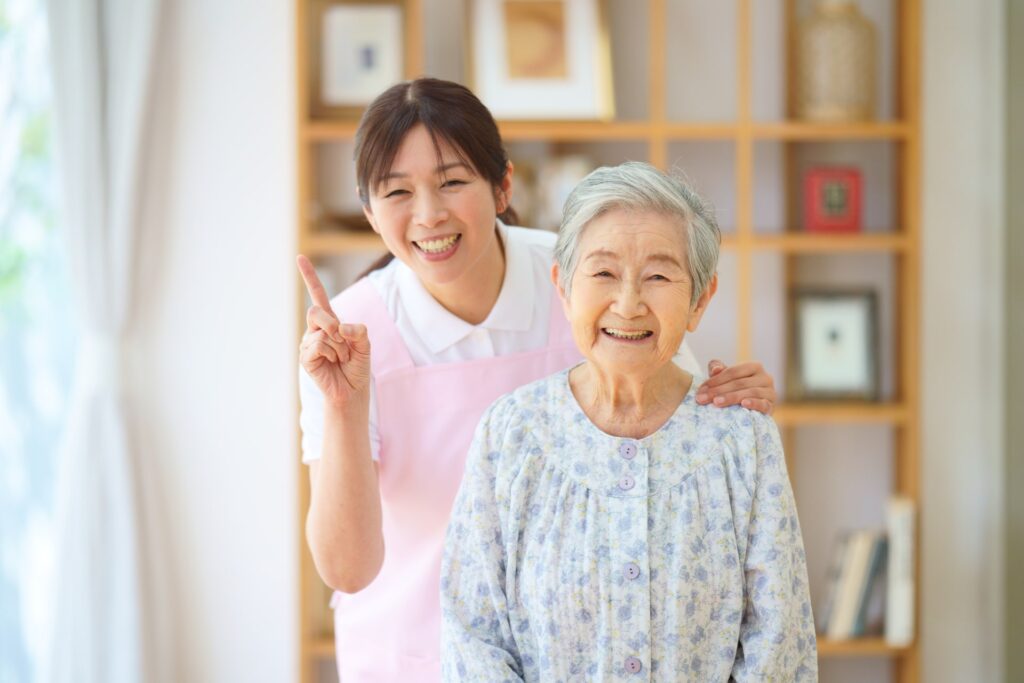
It is crucial to manage your business properly after its initiation. Here are three key points for the smooth operation of elderly care facilities.
Explain the Facility and Obtain Consent at the Time of Contract
When entering into a contract with prospective residents, it is vital to provide thorough explanations and obtain their consent. This prevents future disputes and accusations of failing to fulfill the duty to explain by securing informed consent in advance.
For instance, issues may arise over refund disputes upon departure or cancellation, or in handling and assigning responsibility for conflicts between residents during their stay.
Prepare Accident Prevention and Response Manuals
In the course of operating an elderly welfare facility, the risk of accidents cannot be denied. Possible incidents include falls, choking (aspiration of food into the airway), bathing accidents, infectious diseases, and property damage accidents.
Accidents may not only involve residents but also staff and other residents. To prevent foreseeable accidents, it is essential to create manuals and ensure all staff are fully aware of them.
However, accidents may still occur despite all precautions. Therefore, it is crucial to prepare manuals with specific instructions for initial responses when accidents happen.
By having response manuals prepared and well-communicated in advance, all staff can handle incidents calmly and without panic. In the event of a significant incident, sharing the near-miss cases among staff and updating the manuals can prevent similar accidents in the future.
Consult with Lawyers Knowledgeable in Elderly Care Law
While operating an elderly welfare facility, the possibility of accidents and disputes cannot be dismissed. There may be contractual disputes with residents, conflicts among residents, or unforeseen accidents.
We have explained the necessity of obtaining consent through prior explanations and preparing manuals to prevent disputes and provide appropriate initial responses. However, it is natural to feel uncertain about what explanatory items should be included in contracts or how to create manuals.
In times of uncertainty, we recommend consulting with lawyers who are experts in the field of elderly care and welfare. By seeking advice from lawyers knowledgeable in elderly care law, you can receive professional guidance and attention. Moreover, by consulting regularly as you operate the facility, you can continue to manage it safely and smoothly.
Summary: Understanding Facilities under the Japanese Elderly Welfare Law and Ensuring Proper Management

In an era of declining birthrates and an aging population, the demand for welfare and care facilities for the elderly is a service that will never diminish.
However, there are many types of facilities providing these services, and there are numerous considerations and key points to be aware of when starting and operating a business. Furthermore, disputes with residents and serious accidents can involve litigation risks and the risk of business suspension, making prevention and initial response to troubles and accidents critically important for facility management.
Therefore, it is paramount to have a thorough understanding of the Japanese Elderly Welfare Law and related legislation to safely and appropriately manage your business. If you have any concerns about starting or operating your business, we recommend consulting with a lawyer who is well-versed in the field of laws such as the Japanese Elderly Welfare Law.
Guidance on Measures by Our Firm
The caregiving industry is governed by a complex web of laws, including the Japanese Long-Term Care Insurance Act, the Japanese Elderly Welfare Act, and the Japanese Companies Act. Monolith Law Office serves as the legal advisor for the National Association of Caregiving Service Providers and caregiving service providers across all prefectures, possessing extensive know-how in laws related to caregiving businesses.
Areas of practice at Monolith Law Office: Corporate Legal Affairs for IT & Startups[ja]
Category: General Corporate
Tag: General CorporateIPO





